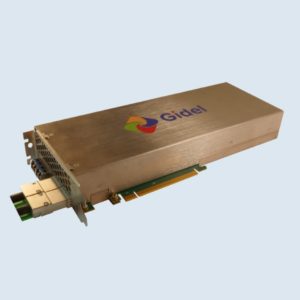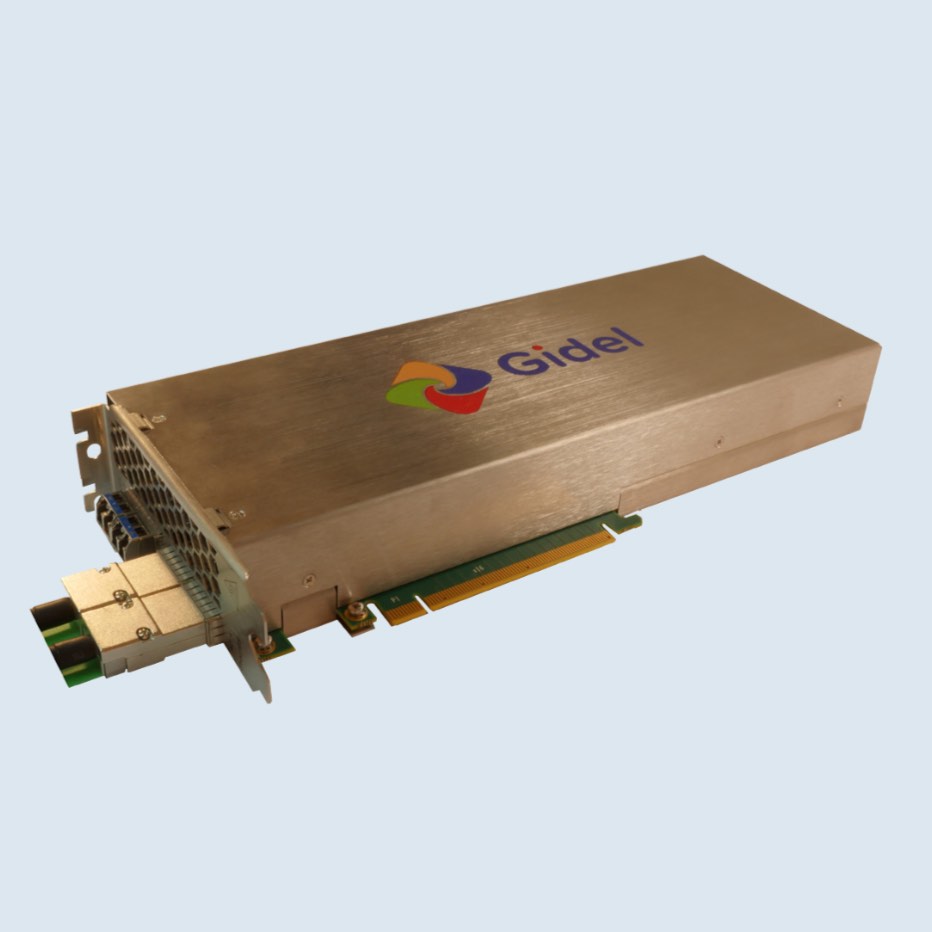 Today Gidel launched their Proc10S family of high performance, scalable compute acceleration boards. Designed with high density Big Data and HPC applications in mind, the devices are based on the Stratix 10 FPGA, which was released by Intel in late 2016.
Today Gidel launched their Proc10S family of high performance, scalable compute acceleration boards. Designed with high density Big Data and HPC applications in mind, the devices are based on the Stratix 10 FPGA, which was released by Intel in late 2016.
The Proc10S is a heavy-duty FPGA and thus opens new markets in HPC for Gidel, such as Deep Learning and Big Data analytics,” says Ofer Pravda, VP Marketing and Sales at Gidel. “Gidel’s long history in algorithm acceleration utilizing FPGA technology has resulted in an enormous wealth of product knowledge that provides us with an advantage in certain HPC and Vision arenas.”
The Proc10S pushes data processing power to new heights with peak single precision performance of up to 10 TFLOPS per device, based on 25 MB of L1 cache at up to 94 TB/s peak bandwidth. The board features an Intel Stratix 10SG 2800/2100/1100 FPGA with 16-lane PCI-Express Gen 3.0 and an 18+ GB multi-level memory structure consisting of three banks of DDR4 memory on board and on DIMMs (up to 260 GB of DDR4).
With up to 2.8 million logic elements, the Proc10S gives designers incredible performance potential. It also features flexible high-speed communication ports — dual SFP+ and dual QSFP+ support at 26 Gb/s per channel — and a PHS connector for a high speed daughter board that features eight channels of full duplex Tx/Rx and up to 139 Gb/s total.
Artificial Intelligence and Deep Learning are ideal markets for the Proc10S because features need to be extracted from data in order to solve predictive problems, such as image classification and detection, image recognition and tagging, network intrusion detection, and fraud/face detection. Other applications include compute intense algorithm processing, network analytics, communications, cyber security, storage, big data analytics, and cloud computing.
The Proc10S is supported by the ProcDeveloper’s KitTM, Gidel’s proprietary tools that make developing on FPGA fast and easy, and allow for simultaneous acceleration of multiple applications or processes, unmatched HDL design productivity (VHDL or Verilog), and simple integration with software applica-
Gidel’s tools make developing on FPGA accessible to software engineers by automatically generating an Application Support Package (ASP) and an API that maps the relevant user’s variables directly into the FPGA design. The tools offer a solution that is unique in the market, and together with Intel’s HLS and OpenCL allow unmatched development efficiency and effectiveness.
Visit Gidel in booth #1242 at SC17 in Denver.




